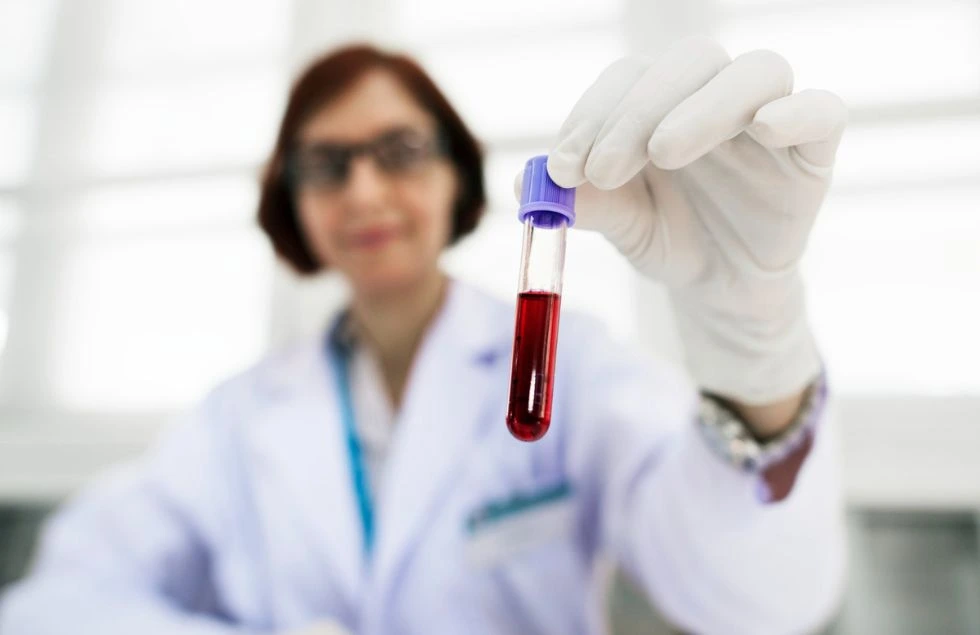When it comes to different types of diets, personalized nutrition is the clear winner. It is taking the USA by storm, and it’s easy to see why. Gone are the days when the same old generic diet plans dominated the wellness space.
With advances in technology and nutrition science, people are now turning to tailored approaches that cater specifically to their bodies, preferences, and health goals. But what exactly is personalized nutrition, why is it becoming such a popular trend, and how can you start? Let’s find out.
What Is Personalized Nutrition?
Personalized nutrition can be defined as ‘a dietary approach that tailors a person’s eating plan based on their individual characteristics, such as genetics, lifestyle, health history, and even microbiome composition.’
Everyone reacts to food differently. Even twins can react to the same food item in different ways. Unlike traditional diets that provide broad guidelines like “cut carbs” or “eat more lean protein,” personalized nutrition also takes into account various factors to create a plan that aligns with your body’s unique needs.
By analyzing data from genetic tests, blood work, and other assessments, personalized or individualized nutrition provides specific recommendations on what to eat and what to avoid.
This approach goes beyond simple calorie counting, focusing instead on improving overall health and addressing specific concerns like blood sugar management, heart health, or weight loss.
Why Personalized Nutrition is Trending in the USA
A study conducted in 2019 showed that around 60% of American adults aged 55 and above suffer from one or more chronic diseases. Also, seven of the ten top leading causes of death in the US are due to chronic diseases. Diet plays an important role here. Increased consumption of fast food, sugary food, and ultra processed food items does not meet the body’s nutrition requirement.
Researchers analyzed 11 studies to compare the results of personalized diet plans to a traditional generic diet. The researchers concluded that people who followed a personalized diet were more likely to improve and stick to their diet compared to others. Here are some of the benefits of NP:
- Tailored Health Outcomes: Personalized nutrition offers plans designed to improve specific health markers like cholesterol levels, blood pressure, and blood sugar. This makes PN attractive to those looking for targeted health benefits.
- Better Weight Management: With a focus on metabolism, genetic tendencies, and lifestyle, personalized nutrition helps individuals lose weight more effectively than standard diets that do not take body type and requirements into consideration.
- Management of Chronic Conditions: Individuals suffering from chronic diseases like diabetes or hypertension can greatly benefit from NP as it can be designed to stabilize blood sugar levels and support heart health, making it a practical and effective solution.
- Increased Sustainability: Since these plans are customized based on one’s food preferences and lifestyle, people can see visible results in a shorter time span and are more likely to stick to them, ensuring long-term success.
- Utilization of Technology: The rise of technology, such as DNA testing kits and AI-driven apps, makes personalized nutrition more accessible and affordable to common people, encouraging them to explore this data-driven approach.
Traditional Diet Plans VS. Personalized Nutrition
|
PARAMETERS |
TRADITIONAL DIET PLAN |
PERSONALIZED NUTRITION |
| Approach | It follows generalized guidelines that are of course science backed. | Personalization nutrition takes it a step forward by creating a diet based on individual biology. |
| Effectiveness | Traditional diet plans are definitely better than no diet plans although an individual might not know which type of diet works for them. | Here, the diet is designed according to the individual; therefore, the success rate and sustainability is pretty high. |
| Long-Term Sustainability | This is often hard to maintain as individuals might feel there are too many restrictions. | PN is more sustainable as it is designed as per personal preference and visible results can be seen quickly. |
| Focus | Traditional diet plans focus more on calorie counting and food groups. | PN focuses more on overall health and specific goal and body requirements. |
| Data-Driven | Rarely considers genetic or metabolic factors. | Utilizes genetic, microbiome, and lifestyle data. |
Personalized Nutrition for Specific Groups
Personalized nutrition isn’t just a one-size-fits-all solution; it uses nutrition science which can be used to customize the diet further for various groups, making it a versatile approach for different needs:
For Athletes
The bodies of athletes go through a lot of wear and tear during intense training and competition; therefore, they need a proper diet that can recover their bodies as soon as possible. Personalized nutrition helps athletes optimize performance by matching macronutrient intake to their training schedules.
Individuals Looking to Lose Weight
While traditional diet plans focus more on calorie restriction to combat overweight, personalized meal plans for weight loss focuses on metabolism, hormonal imbalances, and genetic factors that may influence weight gain or loss. This tailored approach ensures more effective and sustainable weight management.
Individuals with High Blood Pressure
Personalized nutrition for those with hypertension focuses on reducing sodium intake, increasing potassium-rich foods like root and leafy vegetables, and monitoring other nutrients that impact blood pressure. This targeted approach can be more effective than following general low-sodium guidelines.
For Diabetics
Managing blood sugar levels is crucial for diabetics, and personalized nutrition offers meal plans designed to stabilize glucose throughout the day. PN considers factors like insulin sensitivity, family history and carbohydrate metabolism, providing an effective way to manage diabetes.
How to Get Started with Personalized Nutrition
If you’re interested in personalized nutrition, the first step is understanding your unique biology and health needs. Getting started involves:
- Combination of tests
- Professional consultations
- Using digital tools that provide data-driven insights.
Let’s learn about each of them in detail:
1. Tests and Assessments
 Source: Freepik
Source: Freepik
The first step to personalized nutrition is to understand your body. Here are the most common tests:
- Genetic Tests: Genetic testing involves analyzing your DNA to understand how your body processes certain nutrients, your metabolism type, and your genetic predispositions (e.g., lactose intolerance, gluten sensitivity). These tests can provide you and the dietitian with valuable insights to customize a nutrition plan based on your genetic composition.
- Microbiome Analysis: Your gut health plays a crucial role in digestion, immunity, and even mood. A microbiome analysis examines the bacteria in your gut to identify imbalances that could affect your health. For instance, adding food items like kale, spinach, citrus fruits, and fermented foods like kimchi and pickles to your diet, known to increase good gut bacteria, can improve your gut health.
- Blood Work: Blood tests can provide valuable information about your current health status, such as nutrient deficiencies (e.g., vitamin D, iron), blood sugar levels, cholesterol, and more. For example, if you have vitamin D deficiency, the nutrition meal plan tailored for you will include food items rich in vitamin D like oily fish, egg yolks, etc.
2. Consultations with Nutrition Experts
 Source: Freepik
Source: Freepik
Once you have the raw data, your next step must include making an appointment with a dietitian or ISSA certified nutritionists.
Dietitians or nutritionists will study and analyze your data related to genetic, microbiome, and blood tests and create a personalized nutrition plan accordingly. A professional can also guide you through any necessary dietary adjustments over time, ensuring the plan evolves as your body’s needs change. They will also consider any health issues like diabetes or low blood pressure before designing the diet for you.
Also read: Rethinking Protein: Exploring Plant-Based Alternatives for a Healthier, Sustainable Diet
3. Online Tools and Digital Platforms
 Source: Freepik
Source: Freepik
AI-powered tools are at the forefront of the personalized nutrition movement. These tools analyze large data sets from genetic testing, food logs, and health metrics to offer real-time recommendations. Here’s how AI is transforming this space:
- Precision and Accuracy: AI powered personalized nutrition app can provide personalized meal plans and advice by quickly processing complex data like blood sugar levels, nutrient deficiencies, and metabolic rates.
- Monitoring and Adaptation: AI-driven apps monitor user behavior and health metrics, adjusting recommendations dynamically. For instance, if someone’s blood sugar spikes after a meal, the AI tool can suggest modifications for future meals.
- Accessibility: AI technology makes personalized nutrition more accessible to the average consumer. Users can input their data, receive insights, and follow an evolving plan without needing constant visits to a nutritionist.
Conclusion
Personalized nutrition is changing the way people all over the world are approaching health and wellness. By offering customized plans using nutrigenomics based on genetic, metabolic, and lifestyle data, it provides a more effective and sustainable path to achieving health goals than traditional diets. As technology continues to advance, personalized nutrition is becoming increasingly accessible, making it a powerful tool for those seeking to optimize their health.
To read more blogs related to health and wellness, you can check out StayFit StayHealthy.

